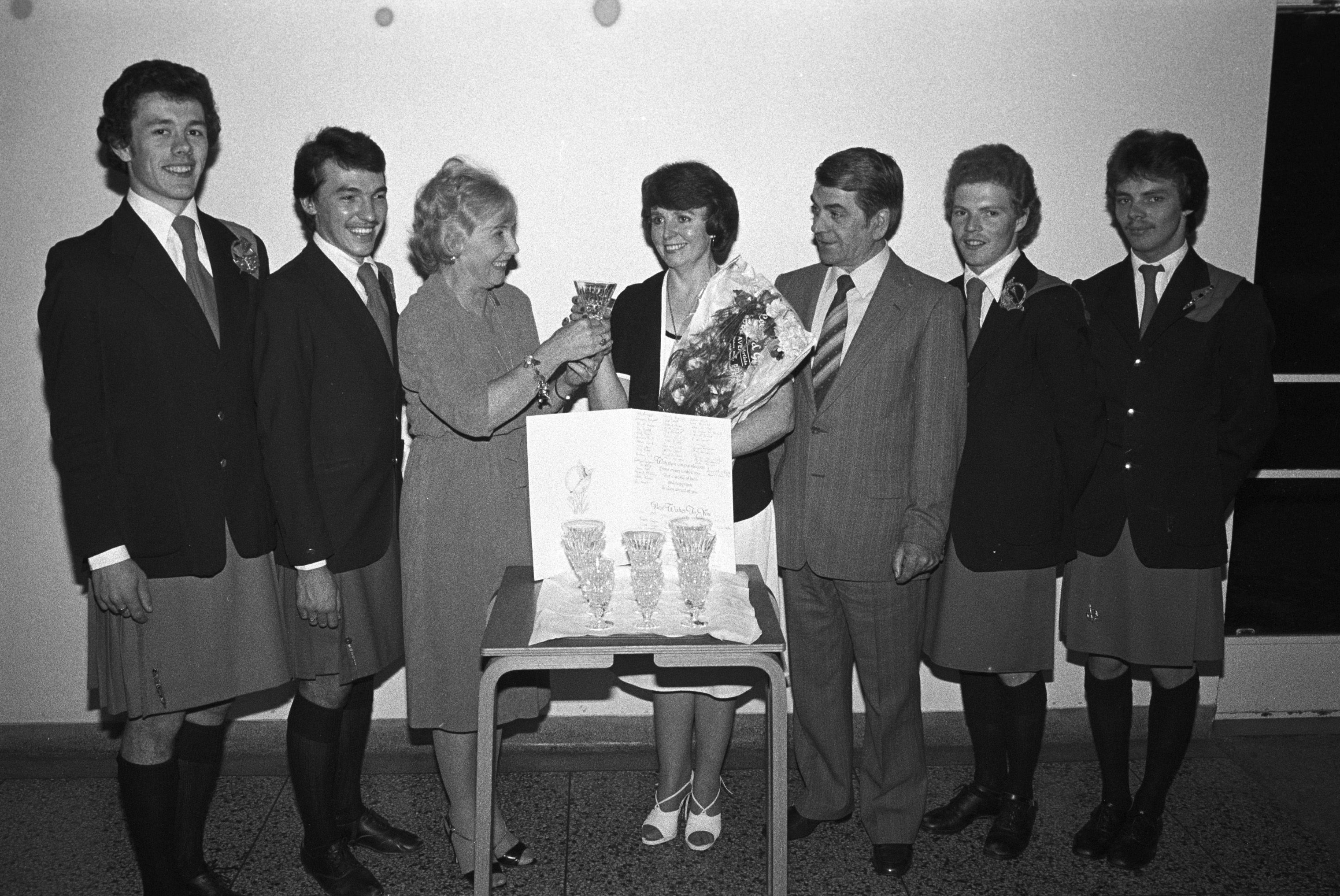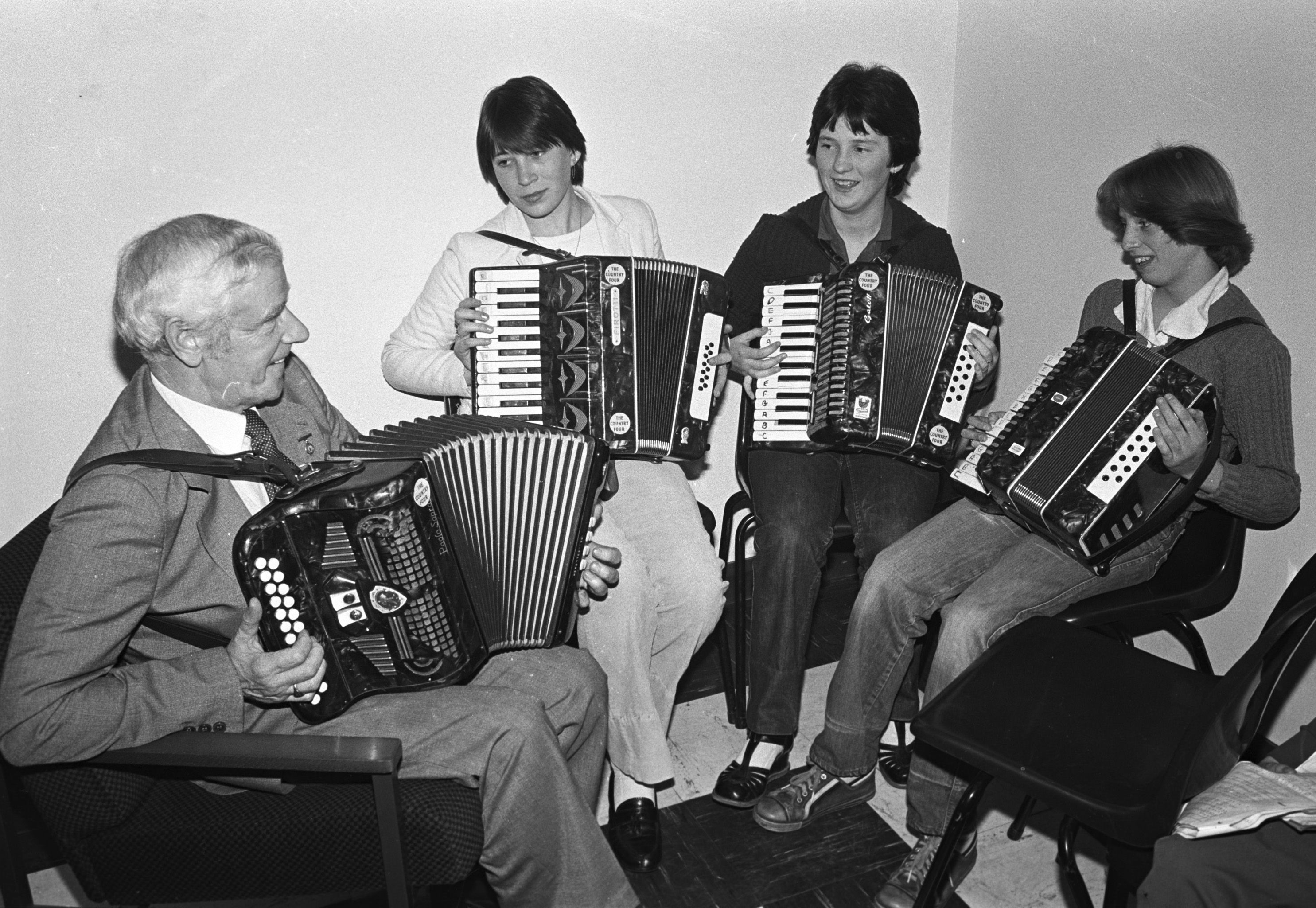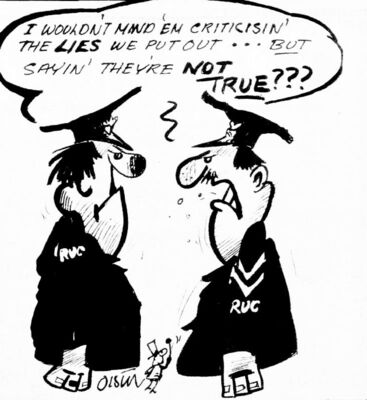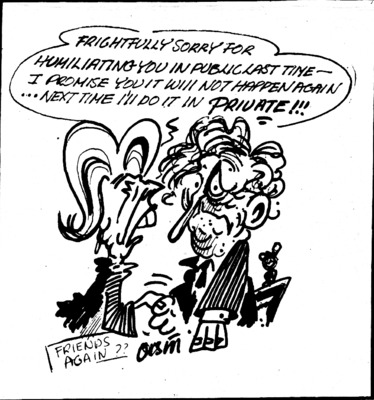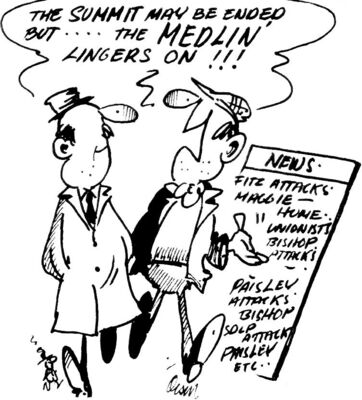We look at the stories that were making the headlines this week in the Andersonstown News in 1980
Down and Connor League 5-a-side winners Newhill FC at Newhill Youth Club, with Sammy Dowds, Pat McStravick, Ned McMullan and John McAree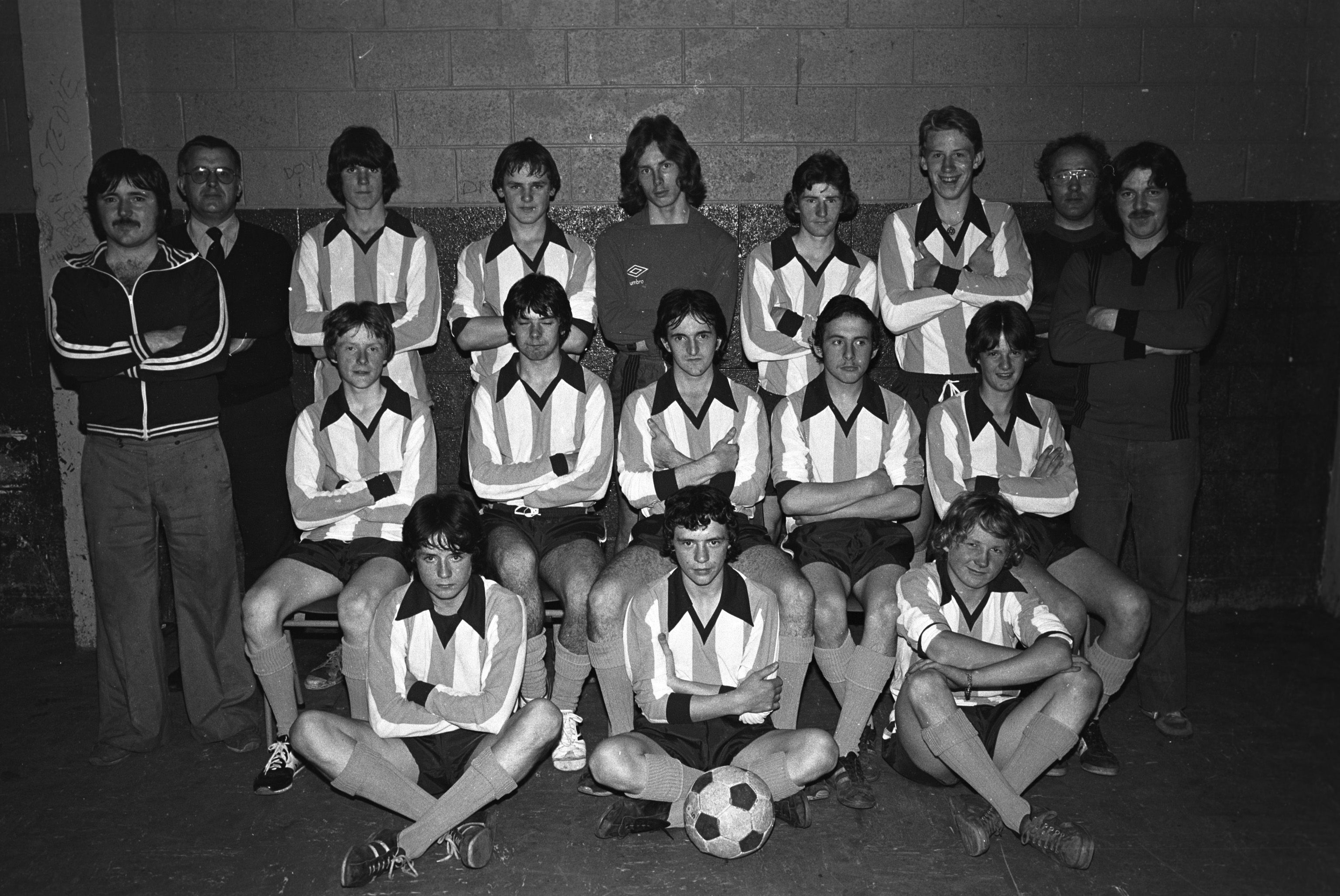
Residents' rage at Rosnareen rats
THE residents of a block of flats in Rosnareen Avenue are up in arms about the plight in which the Housing Executive has left them for the past ten years.
Rats are causing the biggest problem for parents of small children. One parent described them as being 'the size of cats' and she is terrified that her children may be bitten.
The rat problem started in the bin sheds at the back of the block. The rats get into the sheds under the doors which have deteriorated over the years. They are now coming onto the stairs and landings and mothers won't let their children out.
Mrs Nolan, who lives on the top floor of the block, moved in in 1969 after being burned out of Percy Street during the Loyalist pogrom. Since that time she says the block has never been painted on the outside and is now in poor condition. Recently, after much agitation, lights were replaced on the stairs and landings; but the snag is that lights come on during the day and go off at night. This led to Mrs Nolan suffering a fractured toe which kept her off work for three weeks.
Another problem is dampness. One resident in one of these two-bedroom flats has to move her children into the main bedroom because of the dampness which can be seen clearly on the outside wall.
The residents feel that the HE has completely forgotten about them.
When contacted the HE said that the bin problem would be solved as soon as possible. The painting and repairs would have to wait for a decision later this year.
“It would appear that the block was overlooked with the HE takeover in 1975,” a HE spokesperson said.
The lighting was a minor problem and could be seen to immediately.
The residents are unhappy with the present situation. They feel that the economic cut-backs shouldn't apply to them and they are not looking forward to coming winter.
St Patrick's Accordion Band percussion section: Jim Walsh, Dessie McAtamney, Paul Campbell, Frankie McMahon, Gavin Higgins and Sean Hamilton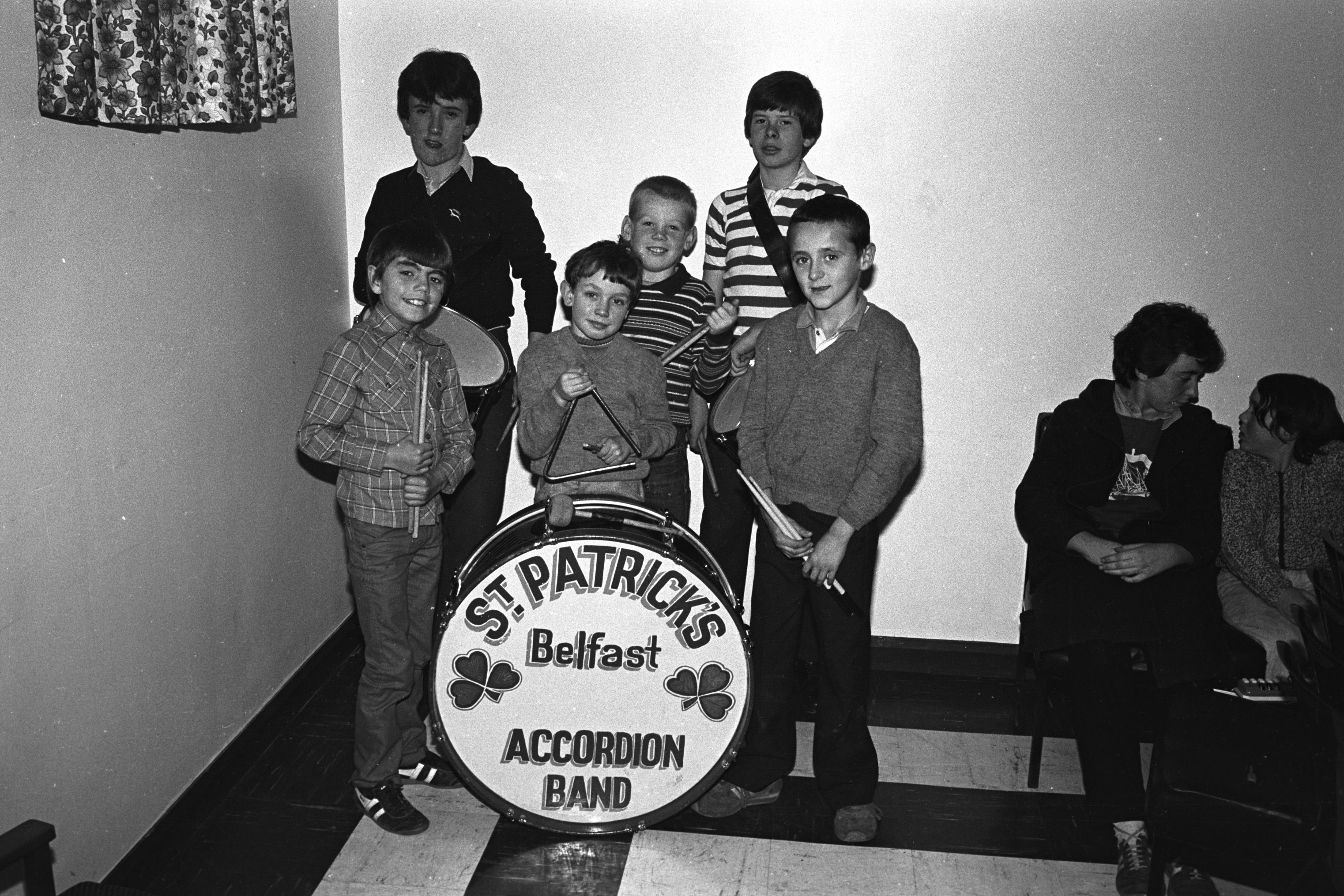
Relatives rally over prisoners
THE Belfast Central Relatives' Action Committee, as part of its continuing programme of activity, organised a march in the Twinbrook area on September, 28th. At the end of the march a rally was held and the meeting was addressed by representatives of the Belfast Central Relatives' Action Committee, an ex-blanket prisoner, and an ex Armagh Jail prisoner, and the mother of a blanket prisoner.
The ex-blanket prisoner thanked those people who had turned out at the demonstration to show their solidarity with the P.O.Ws in the H-Blocks and Armagh Jail. He went on to say that no matter what type of physical torture was used against the prisoners by the 'Northern Ireland' Office, the political prisoners would continue their protest for political status.
The woman ex-prisoner, who had just been released from Armagh Jail, stressed that the men and women on protest for political status relied on the people on the outside to keep up the struggle in the streets. However, she made it clear that the P.O.Ws were not interested in the paltry concessions of Mr Atkins. They demanded the full recognition as political prisoners. They were prepared to continue the struggle no matter what the sacrifice.
The representative of the Relatives' Action Committee pointed out the ridiculous stance of the British Government. Mr Atkins keeps putting forward the set position that the political prisoners cannot be given a special status, because they are criminals. Yet at the same time they demand the right to try these prisoners before special courts, and within the framework of Emergency Legislation. There is no logic in the government's position. The fact that they are tried before special courts places them in a special category.
Inter-club Snooker Competition winners at the Shamrock Club's Annual Sports Night and Presentation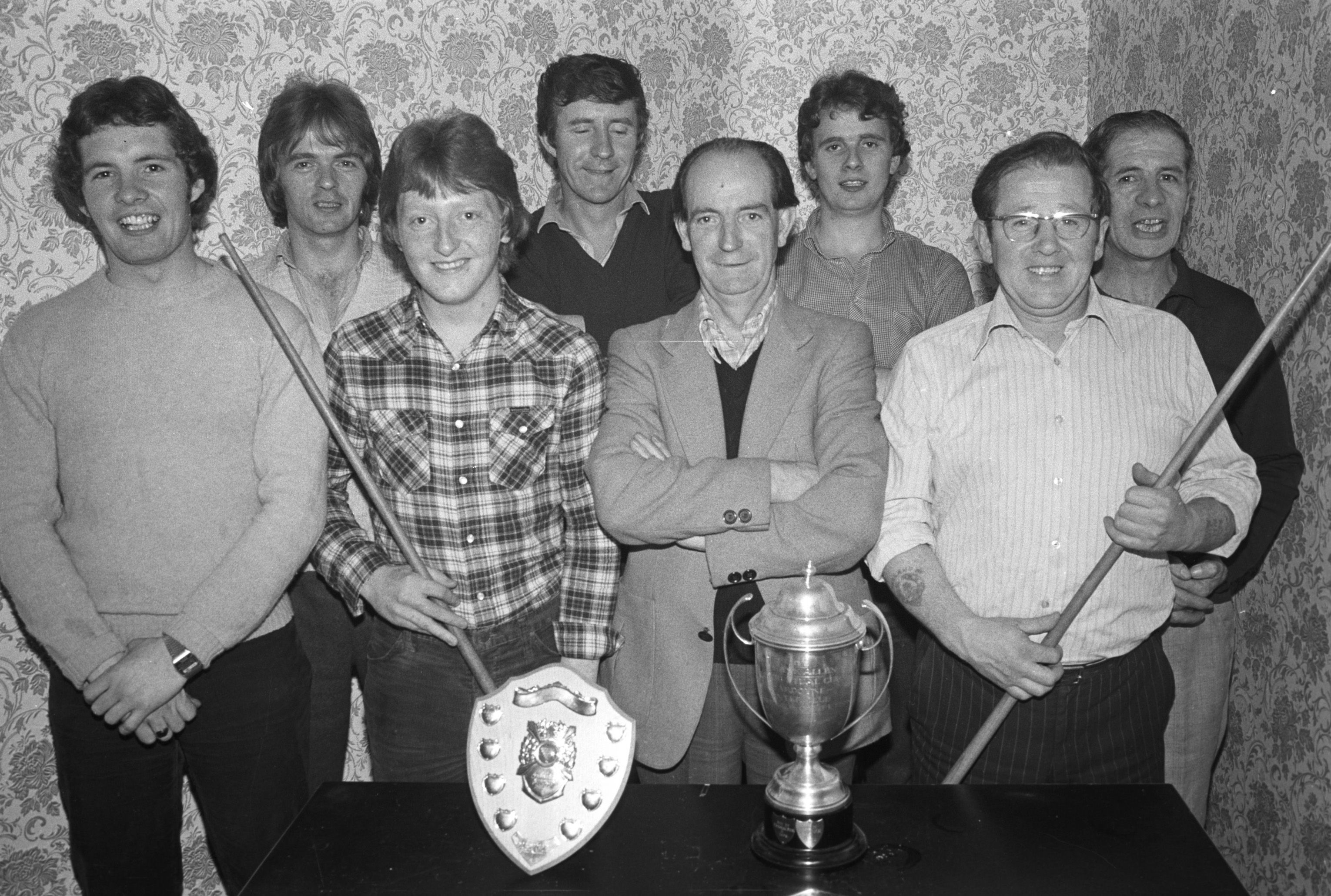
Editorial
“... a misconceived attempt by the British Government to solve a major problem of the day.”
This was how Irish Foreign Minister Brian Lenihan described the setting up of the Six County 'state' when he addressed the United Nations General Assembly on Tuesday.
Whatever the motives behind Mr Lenihan's speech, it is nevertheless, to be welcomed especially as it was made in an international forum.
And whatever criticisms we may like to make about the Twenty-Six County Government, it must be admitted that it is recognised by other nations (including Britain) as a sovereign government, and its voice is a voice of authority; and it is mainly because Dublin has refused to speak out that we have had the bloodshed of the last eleven years. The voice of Dublin is the voice of the Irish people, whether we like it or not. And that voice, raised in defence of basic justice in Ireland and addressed to the nations of the world, must be effective in bringing pressure to bear on the real criminal in Irish affairs, Britain.
It's late in the day for the Dublin government to proclaim Ireland's just cause to the world; perhaps Mr Lenihan's speech is an indication that they intend to carry on the work that we thought they were beginning in 1969 when Dr Hillery addressed the U.N. following the August pogroms.
Anna McCoy presents a trophy to former pupils Voureen and Eamonn at the O'Connor School of Dancing 25-year Jubilee celebration